
Destiny Alvarez is a @UOsojc grad student and journalist. Currently, she is the 2019 editor-in-chief @fluxoregon, a 2019 @UO_Snowden intern at the @registerguard and the Spring 2019 Demystifying Media Intern.
Climate change is about people. News organisations everywhere are focusing in on climate change reporting. Some organisations even have a climate desk. However, you do not have to work the climate desk to cover climate change. According to Rosalind Donald, climate change and climate stories can be a part of any beat. Here is Donald’s list of eight newsroom beats you did not know should cover climate change.
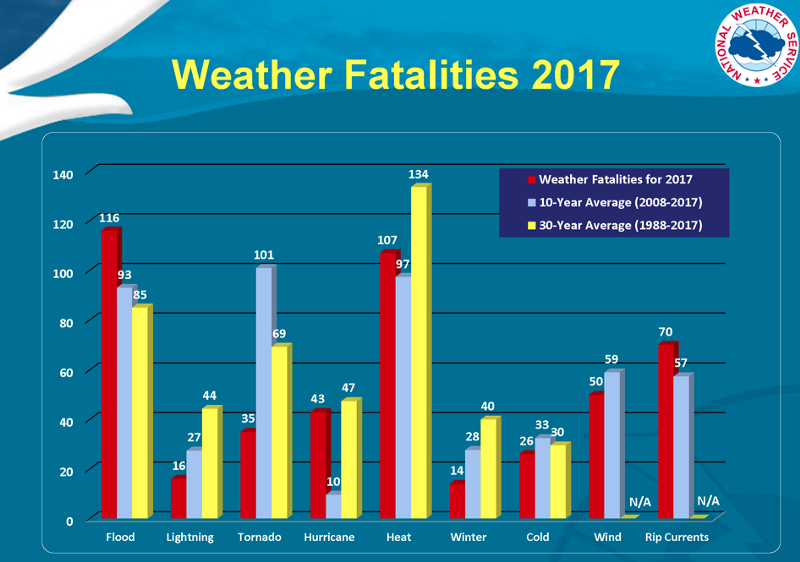
Health
The health beat is a good place to start when covering climate change. Climate change impacts more than just glaciers, it affects people's health. The effects climate change has on people’s health are severe. For example, when extreme heat rises, the National Weather Service reports more people die.
Extreme heat kills more people than any other weather-related event on the planet. Global warming is also creating a chance for old health threats to make a comeback. Diseases that were once trapped in ice are thawing and presenting even more of a risk than before.
Reporting on health and climate change could be a big step in the movement to normalise climate reporting and how people perceive climate change impacts their lives.
Infrastructure
All infrastructure can be vulnerable to the effects of climate change. Not all companies take into account climate change when building, yet they continue to build on land at risk for flooding. Stories like the futures of children in Bangladesh put climate change and vulnerable infrastructure into a context where people can understand it better.
The infrastructure beat is an untapped source for stories concerning climate change, and while most are unsettling, there are also positive angles to address. An example of a positive angle is how researchers at MIT are looking for long-term design solutions for the water infrastructure in Mombasa, Kenya.
Politics
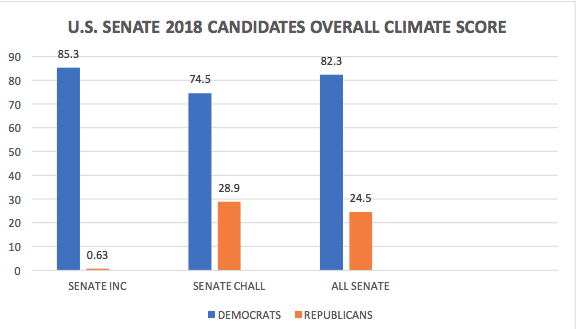
Average Senate scorecard on climate change for Democrats and Republicans Image via Vox
All journalists should be asking politicians about their policies concerning climate change. How government officials vote on climate change is important to the public.
Political stories attract concerned people who want to know how their elected officials are representing them. Reporting such as The New York Times asking the 2020 Democratic declared presidential candidates and USA Today column calling for political collaboration and action are good examples of how politics can be used to add context to climate change.
Foreign Correspondence, Immigration
Journalists covering this beat should look closely at the connections between climate change and migration.
The movements and migration of people is something people do not always consider connected to climate change, but nationally and internationally, men, women and children flee from dangerous situations like natural disasters and political unrest.
Stories such as the Guardian’s Central Americans are being pushed to the US because of climate change offer perspective on the displacement caused by climate-related issues.
National Security
Donald said climate change is considered a threat multiplier for national security. Climate change can create risks for national security and should be at the top of all national security reporters' list.
Several decisions with national security implications are made during a natural disaster. This can include using military resources for humanitarian purposes, such as delivering aid, as well as supporting infrastructure and interrupted supply chains. The impacts of those decisions increase the potential for conflict and terrorism.
Explainers, such as this piece by Vox, which show that making connection between climate change and security issues is a good place to start.
Community
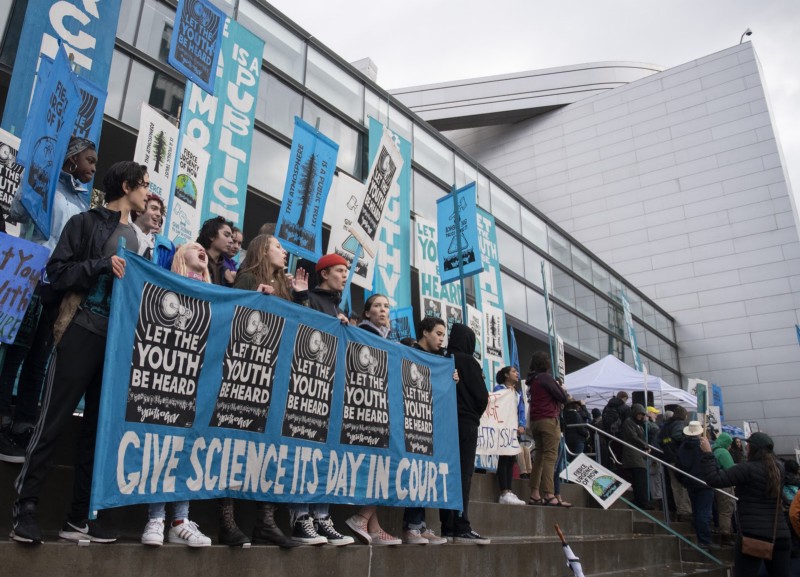
Climate change rally Oct. 29, 2018, Eugene, Ore. Image via Denise Silfee
The reality is climate change impacts everyone. Impacts can be seen beyond natural disasters. Stories can focus on subtle impacts such as flowers blooming early or writing about how local youth feel about climate change.
Everyday stories about everyday people can put climate change into perspective for people, especially in communities that might not experience the visible or more obvious effects of climate change.
Sports
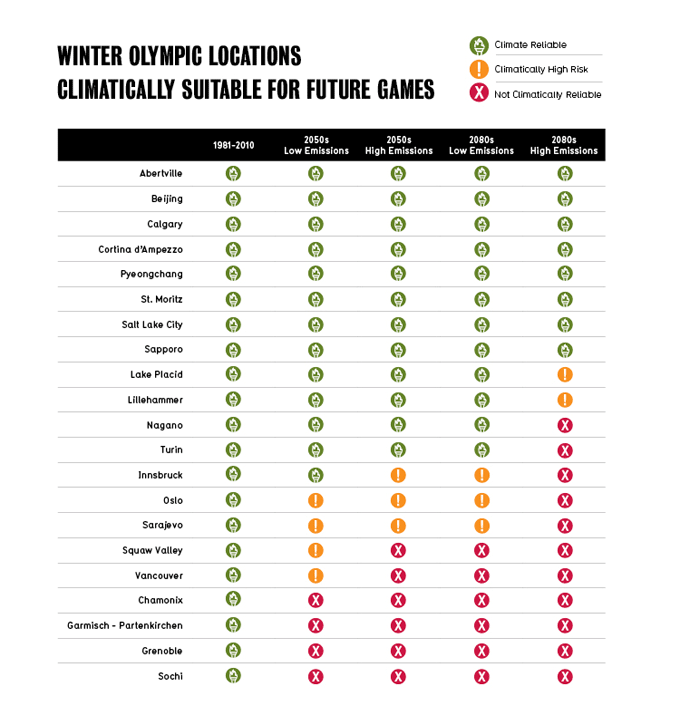
Climate change impacts sports on an international level all the way down to a small-town Little League game. Weather changes are affecting the regular sports seasons. Heat and pollution are creating hazardous conditions for athletes.
In 2012 Beijing resorted to drastic measures to decrease pollution for athletes during the Summer Olympic games. A University of Waterloo study rated the 21 previous Winter Olympic games host cities by their climate reliability. Increasing greenhouse gas emissions could leave 13 of the previous host cities too warm to host the games again.
Sports stories allow reporters to not only tell a non-traditional story about climate change but make the issue much more relatable to readers.
Food, Culture, Agriculture
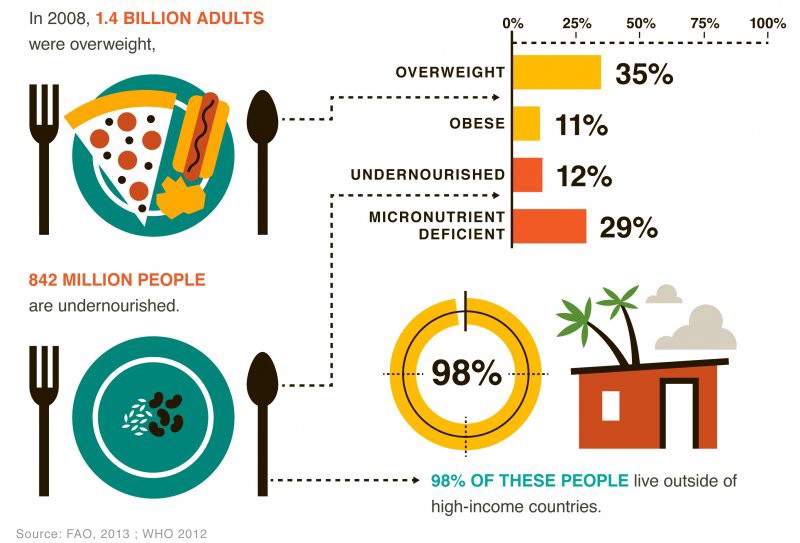
Climate change is altering growing seasons for food all over the world. Altered seasons mean changes in how, when and where food is grown. Cultural foods are declining, fruit seasons are changing, and supply chains are under threat.
Farmers and the agriculture workforce are being displaced, and livelihoods are being threatened. Food is a key way to bring climate change into the discussion surrounding food security. Reporters can focus on stories about people and what it means to have food and agriculture impacted by climate change.
According to Donald, almost every beat can be connected to climate change because climate change is connected to people. There are stories from an international level to local coverage. Not every story concerning climate change needs to be led by science or left in the environmental and science beats.
"A lot of problems come from the way we’ve been trained to see climate change," Donald said. "But the most important thing is to be able to see yourself in it."
Each term, the University of Oregon invites guest speakers in the academic and professional media industry to participate in the 'Demystifying Media' seminar series. The series gives UO faculty, students and staff the opportunity to explore the impacts of the 21st-century media revolution by hearing from those working at the cutting-edge of practice and research. Rosalind Donald, a Columbia Journalism School Ph.D. candidate and researcher, presented the first lecture of the spring 2019 series, exploring how climate change can be a part of any beat. Coverage of the lectures is provided through a partnership with the University of Oregon.
This article has been originally published on Medium and has been republished with permission.
Free daily newsletter
If you like our news and feature articles, you can sign up to receive our free daily (Mon-Fri) email newsletter (mobile friendly).
Related articles
- What can news organisations do to win over consistent news avoiders?
- Addressing consistent news avoidance, with Dr Benjamin Toff
- Covering elections: how to not let politicians steal the narrative
- Trust is not a "useless metric" - we just need to understand it better
- From Reuters to The New York Times, Big Oil pays 'most trusted media brands' to push greenwashing









